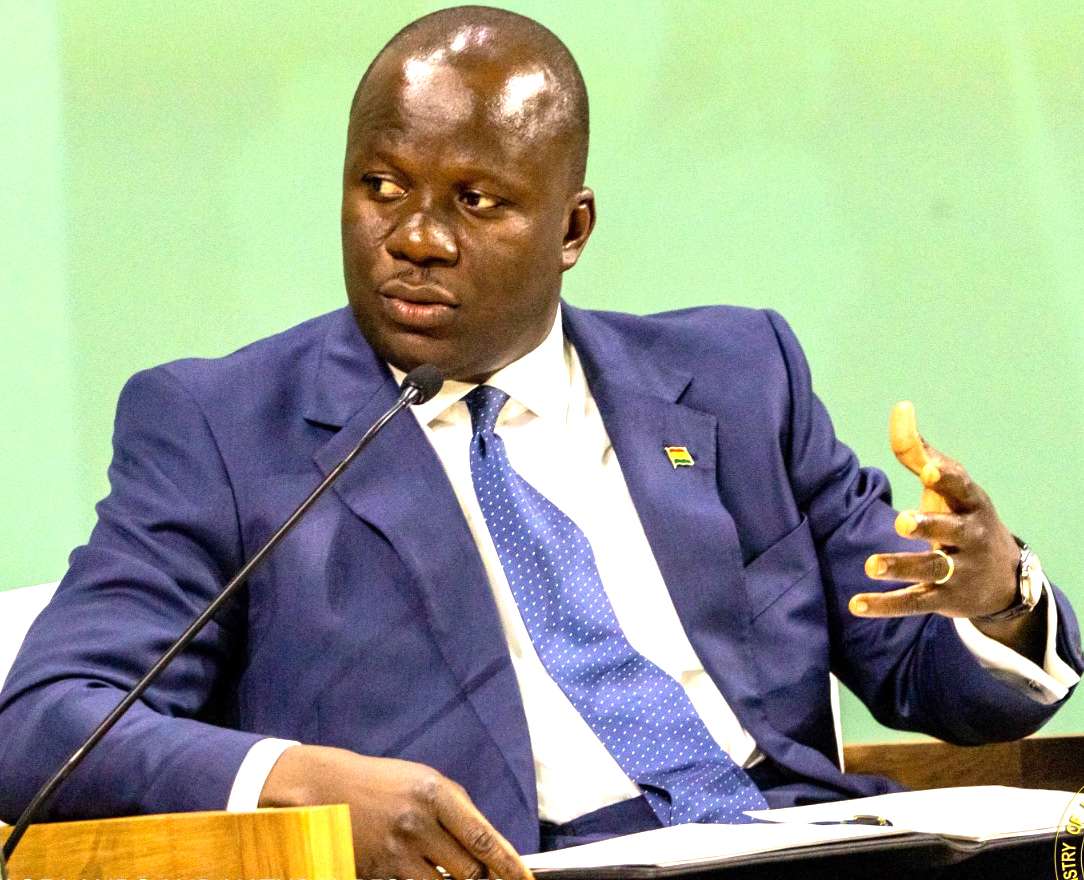The Minister for Lands and Natural Resources, Samuel A. Jinapor has underscored the need for global leaders to take decisive, urgent, and crucial measures in addressing the repercussions of climate change.
Mr. Jinapor made the call as Ghana concluded its participation in the 28th session of the United Nations Climate Change Conference, known as COP28 held in the United Arab Emirates (UAE), Dubai.
Addressing a team of local and International press on Saturday, the Lands Minister stressed the need for the leaders to demonstrate their commitment to the fight against climate change by acting on the agreements, promises and resolves reached at COP28.
Mr Jinapor warned of the ruinous impact of climate change already being felt across the globe and cautioned of the risk of total capitulation if global leaders do not back their promises with actions.
“The world is witnessing the relentless and devastating impacts of climate change. We cannot ignore the dire consequences we have experienced, the tragedies that have befallen us, and the challenges that lie ahead. We have seen seasons of droughts, woes of intense flooding, prolonged hunger, and the emergence of diseases, including the unprecedented COVID-19 pandemic. These are just a few among the myriad of challenges we face as a result of climate change,” he said.
He bemoaned that two years of the Paris Agreement which is a legally binding International treaty on climate change adopted by 196 Parties at the UN Climate Change Conference (COP21) in Paris, France, on 12th December 2015, the world appears to be regressing when it comes to climate change crisis and its impact.
“At COP 21 in Paris, on 12 December 2015, Parties to the UNFCCC reached a landmark agreement to combat climate change by pursuing efforts to limit global temperature increases as close as possible to 1.5 degrees Celsius. Eight years down the line we continue to grapple with the devastating effects of climate change.
“Indeed the 1.5-degree benchmark for limiting the effects of climate change, cannot be achieved without nature. It is an indisputable fact that forests possess great potential to generate a third of the global climate solutions needed by 2030 as major sinks of greenhouse gases. This is amply supported by reports from the United Nations Environmental Programme, the United Nations Framework Convention on Climate Change, the Food and Agricultural Organizations, and other renowned scientists,” he added.
Mr Jinapor also reminded the world once again that the forest and nature-based approach which is the policy direction being championed by the government of Ghana is the most ideal and globally-accepted method of dealing with climate change crisis.
“Undoubtedly, the Forests and Land-Use sector has been globally recognized by the Intergovernmental Panel on Climate Change (IPCC) as a significant contributor of nature-based solutions to help attain the 1.5 degrees target under the Paris Agreement. “Actions such as protecting natural ecosystems from loss and degradation, restoring ecosystems that have been degraded, and sustainably managing working lands can contribute significantly in mitigating climate change and in reaching the Paris Agreement role of keeping global warming below1.5°C,” he said.
He reiterated the commitment and determination of the government of Ghana to partner with countries, public and private agencies to build a resilient climate.
The Minister has therefore charged the global superpowers to commit funds to the execution of nature-based solutions to the menace.
“I call on you, stakeholders, to commit finance towards nature-based solutions to resonate tangible outcomes. We must scale-up nature-based solutions to protect and restore our forests to achieve a 1.5 degrees’ Celsius world. I will leave you with a quote by the renowned English Primatologist and anthropologist, Jane Goodall, ‘Deforestation is changing our climate, harming people and the natural world. We must, and can reverse this trend.’”




































